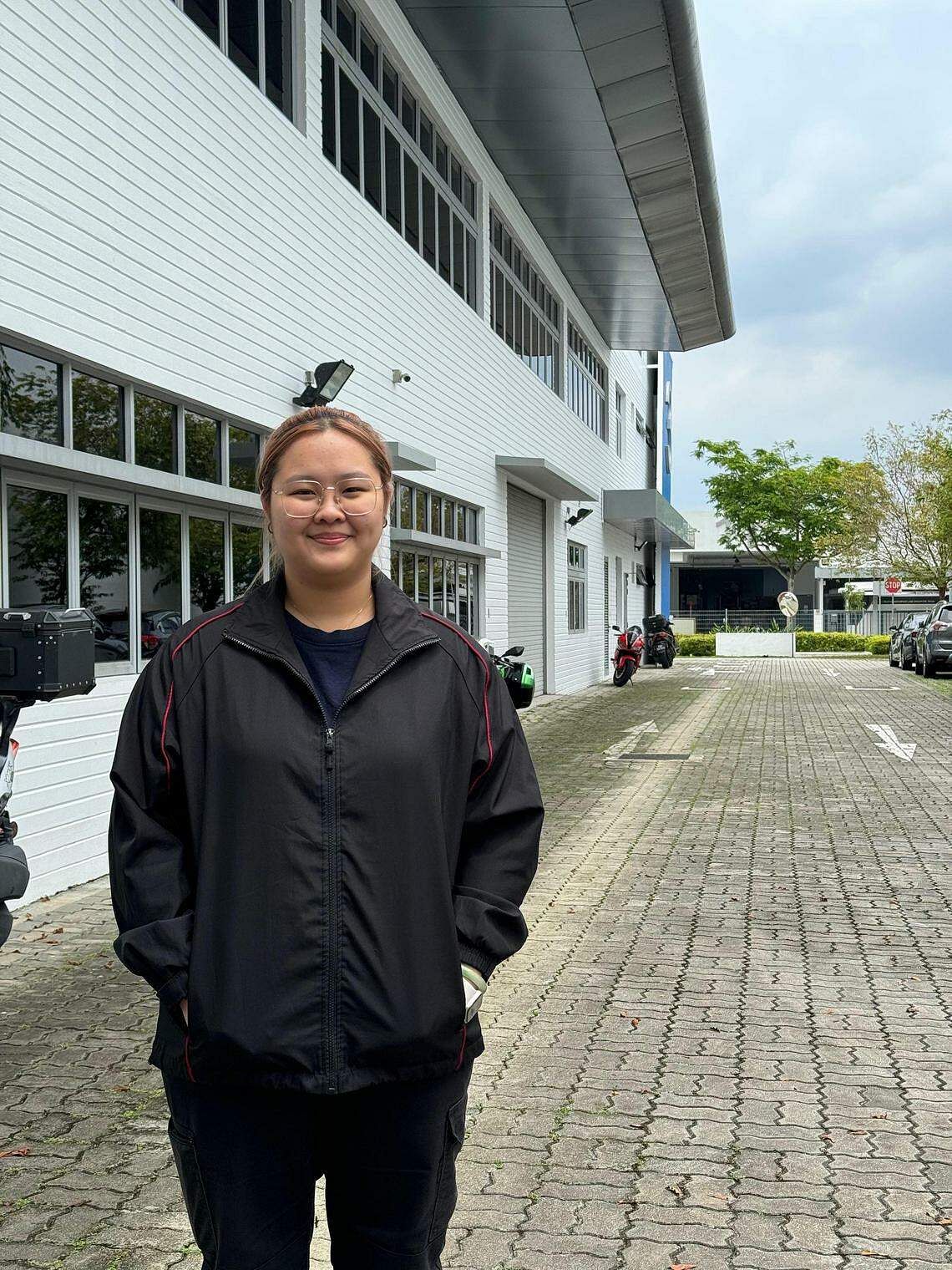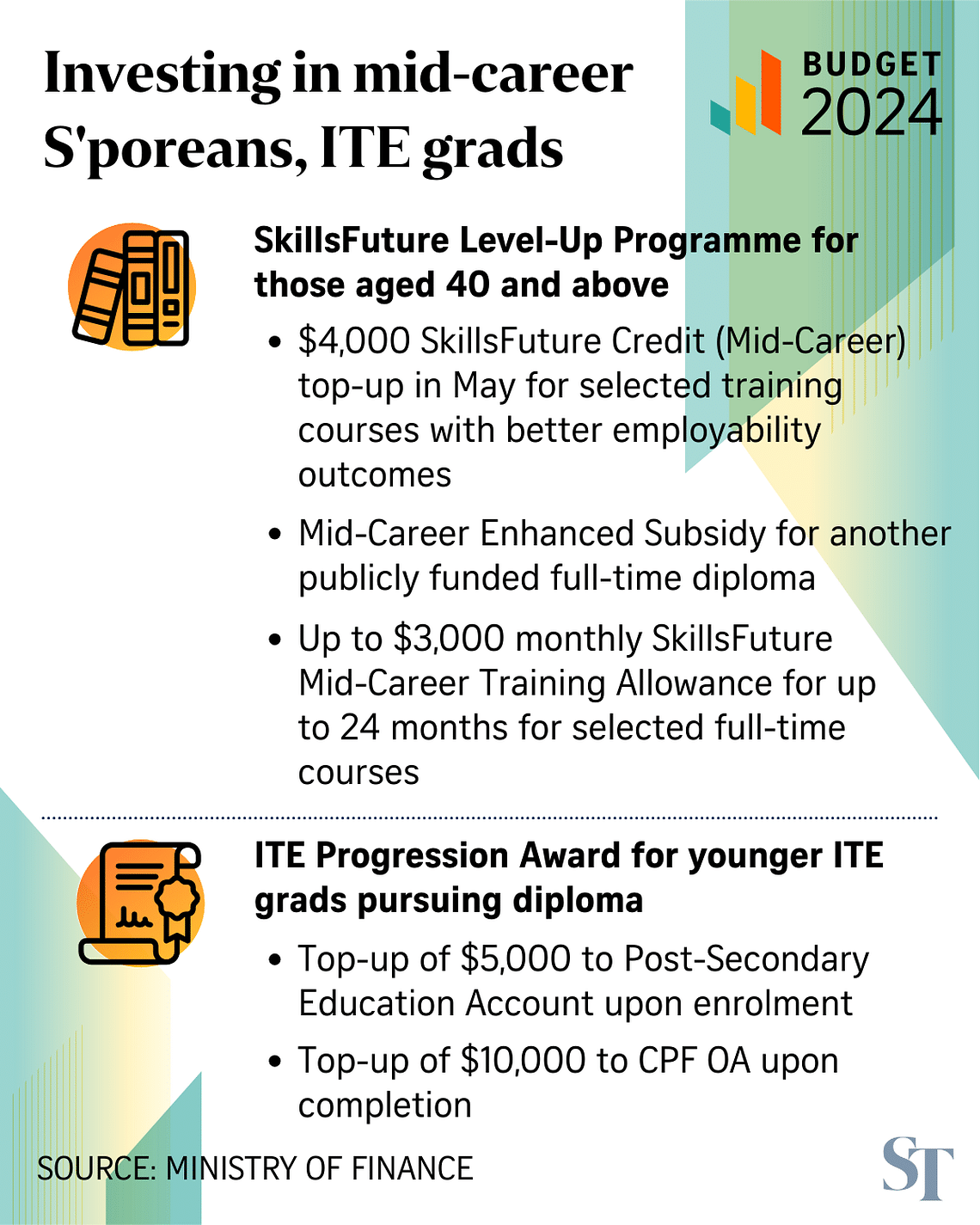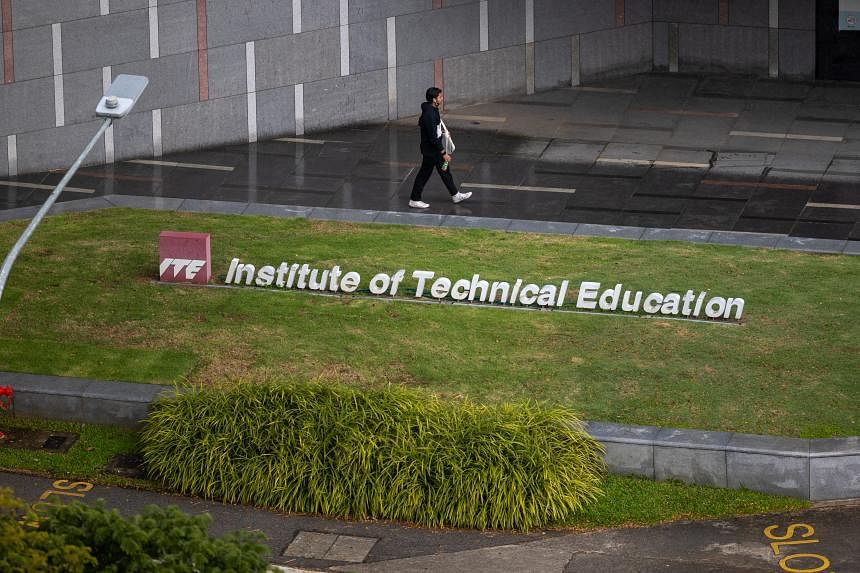SINGAPORE - It was initially a difficult choice between starting work and pursuing a polytechnic diploma for final-year Institute of Technical Education (ITE) student Erra Syazlinie, who is slated to graduate in July.
However, the decision became an easy one to make for the 20-year-old, who is currently pursuing her Higher Nitec in financial services, after she learnt about the $15,000 awaiting her should she complete a diploma programme.
This is a “large amount of money that cannot be easily earned”, said Ms Syazlinie, who now wants to take up a diploma in events management.
To encourage more ITE graduates to upskill and set them on a better wage trajectory, Deputy Prime Minister and Finance Minister Lawrence Wong announced in his Budget speech on Feb 16 financial incentives for ITE graduates aged 30 and below when they enrol in and complete a diploma programme.
They will get a $5,000 top-up to their Post-Secondary Education Account when they enrol in a diploma programme, and another $10,000 in their Central Provident Fund (CPF) Ordinary Account upon finishing the diploma.
This latest move will prod ITE graduates in the right direction of upgrading, said observers, but much depends on whether they can afford to lose the short-term earnings from holding a job during the time they choose to study.
The Straits Times spoke to about 20 ITE students and graduates, some of whom said the monetary incentives will nudge them towards the polytechnic route, while others said they had already wanted to pursue a diploma.
ITE student Amirul Aqmal, 19, now wants to take up a diploma after graduating in 2024, instead of following his initial plan of doing his national service first.
Mr Amirul, who is in his final year of studying for a Higher Nitec in sports management, said the financial perks help him to “worry less”, and would be helpful when he wants to buy a house in the future.
He plans to apply to Republic Polytechnic to obtain a diploma in sports science after he graduates.
ITE graduate Nicole Ng, who has a Nitec qualification in aerospace technology, has been working for the past eight months in an aircraft maintenance company. She is now thinking about returning to polytechnic because of the latest news.
Ms Ng, 22, said: “The money is attractive, so I will seriously consider going to polytechnic again.
“But I am concerned about not being able to get a spot in the polytechnic, so I am not fully convinced yet.”
She had previously started a diploma course in sustainable built environment at Republic Polytechnic, but dropped out shortly after realising she was not interested in the topic.
She is now faced with a choice – to try applying for polytechnic again, or remain at her job, where she was planning to stay for at least two years so she could gain sufficient work experience.

Other potential costs
Her sentiments reflect the tussle some ITE graduates may face in choosing whether to study or enter the workforce earlier, which for some could be driven by financial needs.
Associate Professor Jason Tan from the National Institute of Education said that the top-ups will not completely cover opportunity costs that come with pursuing a diploma, in terms of a loss in income and working experience, as well as other hidden costs, like having less time for family.
Individuals may also have practical concerns about earning a living and whether they have enough time for school work if they return to study, he said. Some ITE graduates who are already working may also find it hard to leave their jobs, he added.
Dr Kelvin Seah, a senior lecturer at the department of economics in the National University of Singapore (NUS), said graduates already working may not have time to study because of long work hours and perhaps families to look after.
There is also added stress involved in pursuing a diploma, said Dr Seah. “Studying and taking exams is mentally challenging... Hence, this may deter some from continuing on to do a diploma.”
Prof Tan said those who choose to pursue a diploma may have to make some sacrifices.
“But what may keep you going in the face of these opportunity costs is the prospect of a better salary and improved chances of career advancement upon completion of the diploma.”

Associate Professor Irene Ng at the department of social work in NUS said the award could be less attractive for ITE graduates who have financial constraints, because the money goes into their Post-Secondary Education Account and CPF Ordinary Account.
“Research from overseas has shown that opening up of more university spots has tended to benefit middle- to higher-income students more than low-income students,” she said.
This may be because lower-income students tend to have lower aspirations, are less likely to interact with others and are not as prepared for higher education, she added.
“We need additional outreach and other initiatives to enable students from low-income backgrounds to pursue a diploma.”
She said: “Beyond this award, we need to also improve the earnings of ITE graduates who do not go on to obtain a diploma, through policies like the Progressive Wage Model.”
Motivation to upgrade
ITE students and graduates said the newly announced incentives motivate them to work harder.
Second-year student Marsya Maisarah, 18, who is pursuing a Nitec in hospitality operations and comes from a single-parent household, said: “I don’t really have much and continuing with a diploma will help my family in the future and some day help me to buy a house.”

First-year Higher Nitec accounting students Mohammed Fair, Mikael Hadriano and Xavier Quek, who are all 19, said they hope to go to polytechnic after completing ITE.
Mr Hadriano said his parents told him the award was a sign for him to work harder in ITE to make the cut for polytechnic.
Mr Quek said many of his peers aim for a diploma so that they do not get stuck with the below-average stereotype of being an ITE student.
“At least with a diploma, there’s an added status, because that’s what people are looking for now,” he said. “It’s hard to find people who will look at you and actually see your potential.”
To meet these aspirations, the Ministry of Education has in recent years opened up different pathways to allow ITE graduates to earn diplomas.
For instance, Higher Nitec graduates can opt for the work-study diploma and technical diploma programmes, which offer more hands-on training. By 2025, both pathways will offer 1,800 places, up from 1,400 in 2023.
From academic year 2027, those pursuing a Higher Nitec qualification at ITE will be guaranteed admission to a related polytechnic course if they attain a grade point average of 3.5 or above, the ministry had previously announced.
Nanyang Polytechnic (NYP) motion graphics student Jeralyn Tan, 24, who was from ITE, said: “I feel like a diploma can help me secure a better job, and one with a higher starting pay.”
Her main priority was to upskill and fulfil her dream of becoming an art therapist.
“My lecturers at ITE told me that going to this course in NYP will grant me more opportunities as this course is one of the top few in the world,” she said.
Ngee Ann Polytechnic community development student Muhamad Imran, 23, hopes to be a social worker in the future.
He said: “I could not have just stopped at ITE... I wanted to pursue my diploma to get a good job and to make my family proud at the same time.”
- Additional reporting by Whitney William


